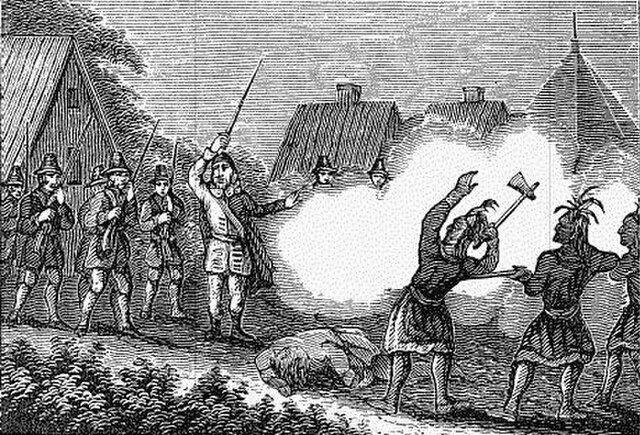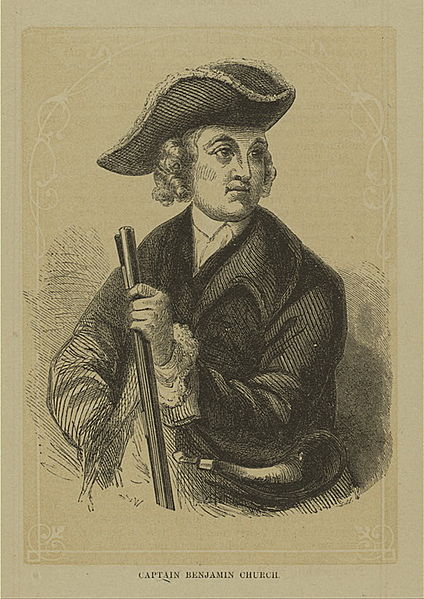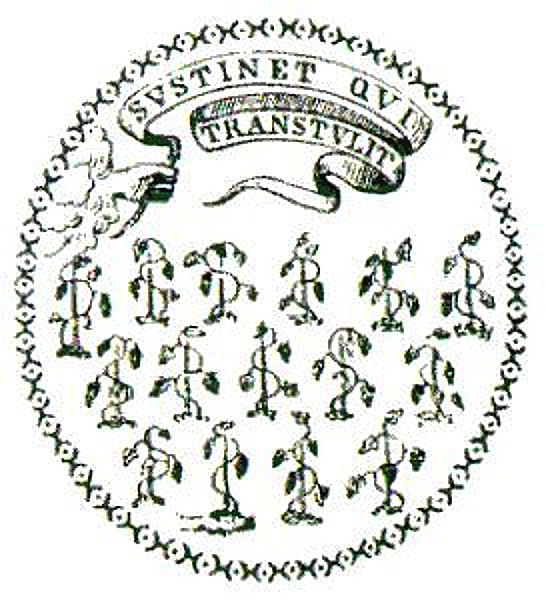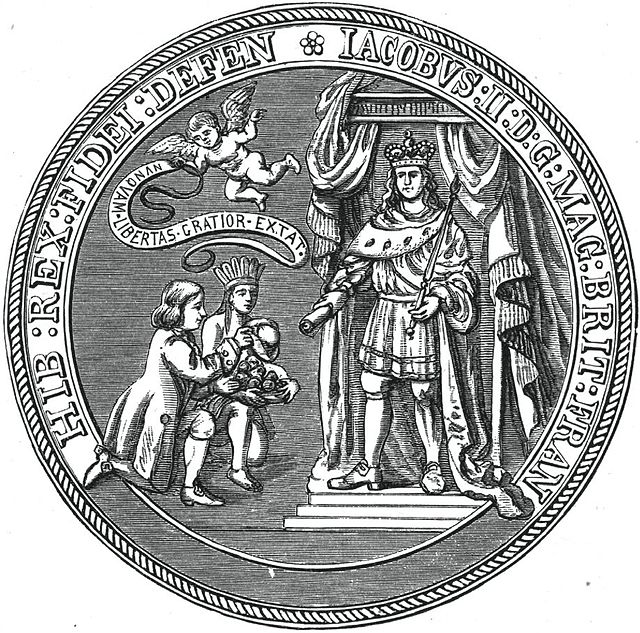King Philip's War was an armed conflict in 1675–1676 between a group of indigenous peoples of the Northeastern Woodlands, the English New England Colonies and their indigenous allies. The war is named for Metacom, the Pokanoket chief and sachem of the Wampanoag who adopted the English name Philip because of the friendly relations between his father Massasoit and the Plymouth Colony. The war continued in the most northern reaches of New England until the signing of the Treaty of Casco Bay on April 12, 1678.
"King Philip's Seat," a meeting place on Mount Hope in Bristol, Rhode Island.
Site of "Nine Men's Misery" in Cumberland, Rhode Island, where Captain Pierce's troops were tortured to death
Colonists defending their settlement (non-contemporary depiction)
Benjamin Church: Father of American Rangers
The New England Colonies of British America included Connecticut Colony, the Colony of Rhode Island and Providence Plantations, Massachusetts Bay Colony, Plymouth Colony, and the Province of New Hampshire, as well as a few smaller short-lived colonies. The New England colonies were part of the Thirteen Colonies and eventually became five of the six states in New England, with Plymouth Colony absorbed into Massachusetts and Maine separating from it.
Image: State CT Original Seal
Image: State CT Original Seal
Image: Seal of the Dominion of New England






